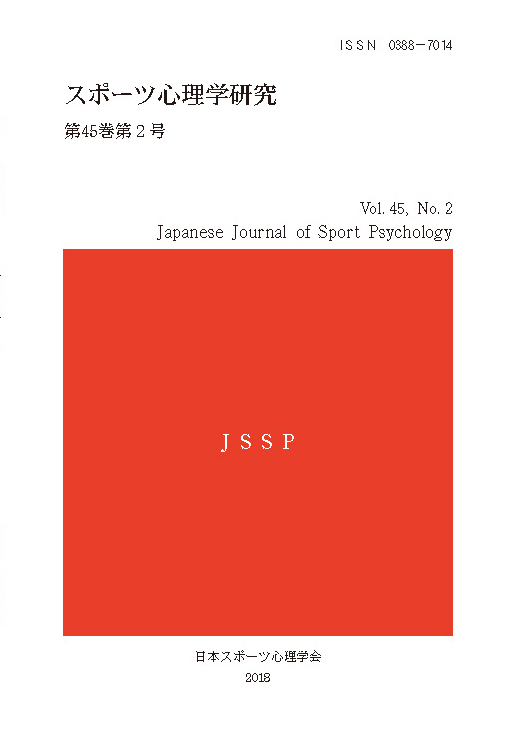Japanese athletes often use the phrase “
Kimochi ga kireta” (“I lost my spirit” in English) when they describe negative feelings during competitions. Although many athletes use this phrase and face this psychological problem, what it means and how it happens have not been studied. The purpose of this study was to clarify the mechanism underlying the “
loss of spirit” phenomenon during competitions and the usage of this term, through a qualitative analysis. After semi-structured interviews were conducted with 14 athletes (M=8, F=6; mean age=20.43±1.40 years; mean duration of competitive career=11.64±4.62 years), 16 cases of “
loss of spirit” were qualitatively analyzed with the KJ method (Kawakita, 1967) and classified into four types depending on causes of this phenomenon. It was revealed that “
loss of spirit” is caused by (a) low motivation before the game, (b) opponent’s attitude or gap in ability, (c) bad tide of the game, and (d) unexpected events. The results also showed that the mental state of “
loss of spirit” includes low motivation, decreased concentration, and feeling physical fatigue and pain. Moreover, it is indicated that this phenomenon leads to dissatisfying results in competitions. Therefore, this phrase is often used by athletes because it is a short expression of a mental state with multiple causes.
抄録全体を表示
